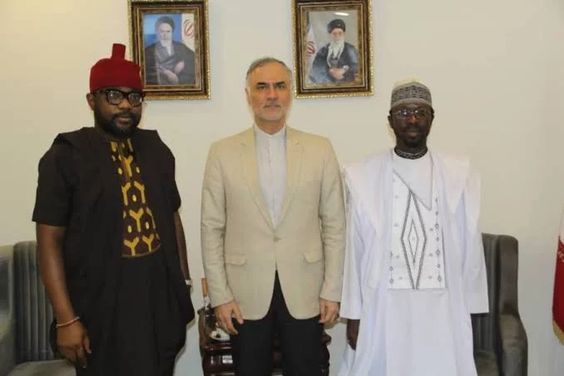Business
Iranian infrastructure will support Nigeria’s oil and gas projects – Ambassador

The government of Iran has stated that it is willing to work with Nigeria to improve the country’s downstream oil and gas industry.
The House Committee on Downstream Petroleum’s Chairman, Rep. Ikenga Ugochinyere (PDP-Imo), and Rep. Aliyu Mustapha (PDP-Kaduna state), were guests of the Iranian Ambassador to Nigeria, Muhammad Alibak, who made this known.
The support, according to the envoy, would cover refineries and other relevant infrastructure.
He declared that Iran was willing to assist the Nigerian government in resolving its energy issues through joint investment and cooperation.
The envoy outlined Iran’s eagerness to support Nigeria’s oil and gas industry and look into alternate energy sources.
Additionally, according to Alibak, areas of cooperation included Compressed Natural Gas (CNG) projects, refinery upgrades, petrochemical endeavours, and successful exploration programmes.
He emphasised Iran’s steadfast commitment, which was demonstrated by an earlier Memorandum of Understanding (MoU) signed by the former Minister of Petroleum Resources, Mr. Timpre Slyva.
The envoy also emphasised subsequent letters from Iran’s oil minister, highlighting their desire to work closely with Nigeria.
In his remarks, Ugochinyere stated that the goal of their trip was to forge stronger ties of collaboration based on Iran’s long-standing desire to support Nigeria’s development and progress in the downstream industry.
Following the passing of the Petroleum Industry Act (PlA), he claimed that “there are many opportunities within the downstream and midstream oil domains.”
In order to strengthen the ongoing development in the oil and gas sector, the congressman advocated increased investment partnership with Iran.
The importance of enhancing lucrative exploration efforts, developing the CNG project, promoting petrochemical activities, and refining other energy sources was emphasised by Ugochinyere.
The chairman applauded Iran for effectively using its gas resources, which allowed for wider access to refined gas and promoted economic expansion.
He praised Iran’s fortitude in continuing to refine indigenous oil and increasing its capacity despite international economic sanctions.
According to Ugochinyere, Nigeria’s energy security, exploration operations, local refining, and industry expansion might all benefit from deeper cooperation with Iran, a nation that overcome obstacles like international sanctions.
The chairman gave his word that the Nigerian Parliament would closely monitor the PlA’s implementation, making sure that its aims were upheld with uncompromising consistency.
He urged Iranian oil firms and investors to take advantage of the open and competitive market environment, use the newly found stability in Nigeria’s oil and gas sector, and make significant investments.
During his remarks, Mustapha emphasised the urgent need for Nigeria to switch from exporting raw materials to domestic refining.
“This shift would open the door for increased economic stability, the production of foreign exchange, and the creation of jobs.
The withdrawal of subsidies, the ensuing volatility in Nigeria’s oil and gas industry, and the prospective prospects afforded by the PIA, he continued, “make this even more feasible.” (NAN)
